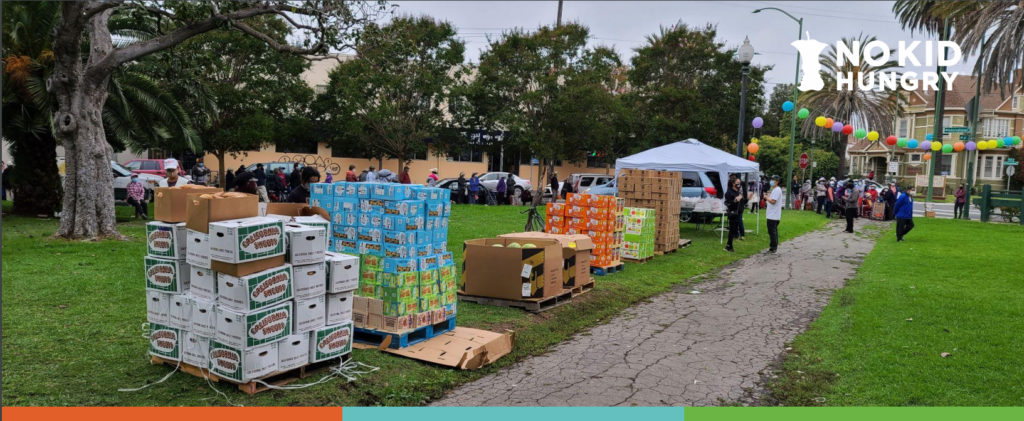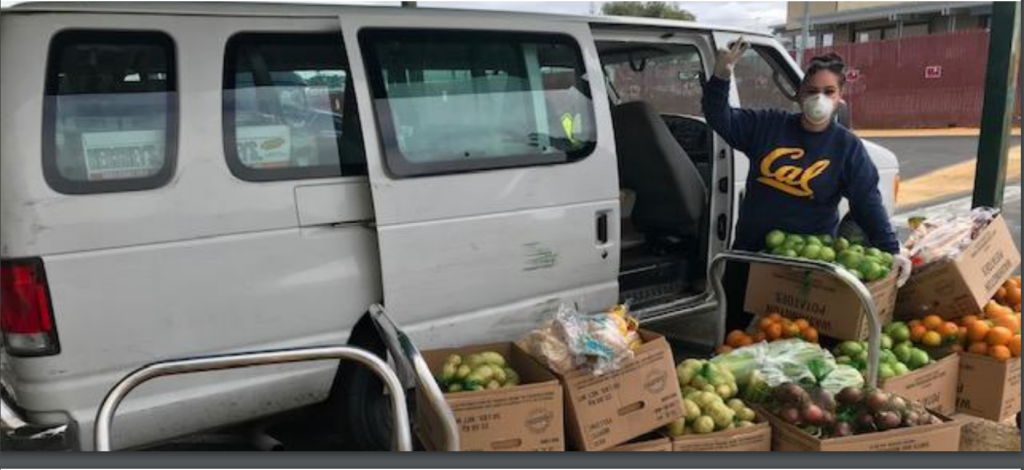
ALL IN Alameda County: Government and Community Working together to address poverty through system change
We recently sat down with Dr. Larissa Estes White, the Executive director of All IN Alameda County. Launched in 2014, ALL IN Alameda County helps Alameda residents meet their basic needs related to food, shelter, safety, healthcare, and access to quality educational and economic empowerment opportunities that promote self-sufficiency. They do this by recognizing the role that racism and discrimination play in creating persistent poverty, especially among communities of color.
ALL IN Alameda County’s primary focus has been increasing access to nutritious food. They have worked on this issue in several different ways, including:
Leveraging healthcare to increase access to healthy foods by also addressing food insecurity and improving chronic conditions;
Creating local food farmacies;
Engaging in neighborhood-based policy and advocacy; and
Developing food recovery programs.
Doing this work in partnership with various organizations and governmental agencies, their staff is racially and ethnically representative of the communities they serve. Some areas have large Latinx, Asian and African-American populations. The massive influx of tech money in the Bay area has affected many of these groups, pushing many out of their communities. As a result, their service area has many areas of concentrated poverty.
Realizing the Importance of Partnerships
ALL IN Alameda works with local community members to build their capacity to address poverty within their neighborhoods. Dr. Estes White discussed the importance of disaggregating data to ensure that groups aren’t all lumped together. For example, when you look at the Asian population, you may not see the specific disparities facing some racial and ethnic groups, such as the Pacific Islander community. To alleviate this concern, she partnered with the Regional Pacific Islander Taskforce to better understand specific subgroups of the Pacific Islander community, so they can gain a more accurate perspective on how poverty affects each group differently. During the pandemic, ALL IN Alameda County connected the Regional Pacific Islander Taskforce to other community-based organizations to improve food access through a fresh produce box program and to launch a testing
vaccination campaign to target Pacific Islander populations impacted by COVID-19.

Looking Beyond the Numbers
Although data is an essential tool, Dr. Estes White believes that numbers don’t tell the whole story. She recommends that organizations use storytelling as one way to illustrate the real impact of an initiative. In February 2022, ALL IN Alameda County, in partnership with the Hellman Foundation and reimagine collective, developed a report on how four grassroots organizations in Oakland, CA, organically came
together to hold space for their communities at the height of the COVID-19 pandemic in early 2020. From this collaborative work, East Oakland Collective, Homies Empowerment, Street Level Health Project, and Trybe collectively urged funders, government, other grassroots organizations, and their community to reimagine how they work towards social change. ALL IN hosted a funder briefing sharing concrete ways in which stakeholders can rethink the distribution of resources and reconceptualize the way collaboration happens. You can watch a recording about this program here and read their report; In Solidarity, We Feed Our Community.
Reducing Food Insecurity
When asked to share a successful strategy for how they are reducing food insecurity within their community, Dr. Estes White recounted a story about their partnership with Trybe, a member of the San Antonio Family Resource Center. The San Antonio Family Resource Center is a kindergarten readiness initiative funded by First 5 Alameda County. When the pandemic occurred, as with other communities
across the nation, there was a huge need for food. ALL IN Alameda County connected Trybe and other community partners to resources to support their mass distribution of food and other essential items to families associated with the San Antonio Family Resource Center and throughout Oakland. ALL IN Alameda County provided capacity-building support for Trybe on opportunities to leverage federal
dollars, build partnerships, and how to ask for what they needed to serve the community. Each week, Trybe would distribute three weeks of food to families, diapers, formula, laptops, and hot spots for students to help them participate in virtual school. This would allow families to shelter in place for an extended period and reduce the risk of COVID exposure in public areas. The program also helped to
employ individuals within that local community, which provided on-the-job training and steady employment during a time when many businesses were closed or operated with limited staff. Dr. Estes White explained that this project was a great demonstration of “what it can look like when government invests in what community does well.”

Last Reviewed: May 18, 2023



